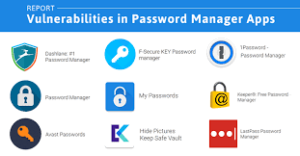NAB has unveiled an ambitious plan to eliminate passwords for Internet banking within the next five years. This bold initiative aims to enhance security by introducing advanced technologies such as passkeys and biometric recognition systems.
The traditional password method has long been criticised for its vulnerabilities. Many users opt for weak passwords or resort to reusing the same credentials across multiple accounts, creating significant security risks.

Sandro Bucchianeri, NAB’s chief security officer, expressed serious concerns about the reliability of passwords in today’s digital landscape. He emphasised that as cybersecurity breaches become more frequent and identity theft continues to rise, relying on passwords has become increasingly risky.
By adopting innovative solutions like passkeys—unique cryptographic keys stored on devices—and biometric methods such as fingerprint or facial recognition, NAB hopes to provide a safer banking experience. This transition reflects a broader trend within financial institutions toward embracing cutting-edge technology to safeguard customer information.

As banks look to bolster their defences against cyber threats, NAB’s forward-thinking approach represents a significant shift in how customers will interact with online banking platforms in the near future. The push towards eliminating passwords signals growing recognition of their inadequacy in providing robust protection in an era of escalating digital threats.
Earlier this year, Eubank, the digital subsidiary of a major bank, unveiled a revolutionary feature: passkeys. This innovation transforms the way customers access their banking app by utilising biometric authentication methods that are already familiar to them.
With passkeys, users can log into the Ubank app just as effortlessly as they unlock their smartphones. By leveraging facial recognition technology or fingerprint scanning, customers no longer need to remember complex passwords. For those who prefer a more traditional method, a simple PIN or swipe pattern remains available.
This shift towards biometrics signifies a broader trend in the financial industry: enhancing security while promoting convenience. Customers can now enjoy peace of mind, knowing that advanced security measures protect their personal information.
By simplifying the login process, banks not only improve user experience but also encourage greater engagement with their digital services. As more banks explore similar technologies, it’s clear that banks are at the forefront of reshaping how we interact with our finances in the digital age.

Bucchianeri expressed his belief that the broader NAB bank would likely adopt similar measures within a timeframe of three to five years. In an interview with The Sydney Morning Herald, he emphasised the delicate equilibrium that must be maintained in the realm of security—striking a balance between safeguarding user information and ensuring ease of access. He articulated a concern that if security protocols are too stringent, users might resort to more straightforward methods, like jotting down passwords on Post-it notes, out of frustration at the complexity involved. Conversely, he recognised that if the system is overly accommodating for user convenience, it could lead to significant compromises in security.
Currently, NAB customers enjoy various login options through their app, which includes advanced biometric authentication methods such as Face ID and fingerprint recognition for accessing their online banking accounts. Bucchianeri pointed out a troubling trend: identity and credential theft have been on the rise as fraudsters increasingly employ phishing emails to acquire sensitive information like names, email addresses, and passwords from unsuspecting individuals. He revealed that NAB is currently countering over 50 million cybersecurity threats each month. Cybercriminals often target smaller businesses with weaker security measures that partner with NAB in an attempt to extract valuable data.
In response to these escalating risks, last month saw NAB join forces with other major banks—including CBA, ANZ, Westpac, and Suncorp—to establish BioCatch Trust. This initiative aims to create an interbank network dedicated to sharing intelligence about fraud and scams in real time before any payments are processed for customers. Additionally, NAB has implemented measures such as payment alerts designed to notify users of transactions that appear unusual or suspicious. To further bolster security efforts, they have eliminated links from text messages sent to customers—a proactive step aimed at reducing vulnerabilities associated with phishing attempts.

Maxthon
Maxthon has made remarkable advancements in bolstering the security of web applications, embracing a comprehensive strategy that emphasises both the safety of users and the protection of their data. The browser employs cutting-edge encryption technologies, establishing a formidable shield against unauthorised access while data is being transmitted. As users engage with various online platforms, their sensitive information—including passwords and personal details—is encrypted and sent securely, rendering it exceedingly challenging for malicious entities to intercept or exploit this information.
Beyond its impressive encryption capabilities, Maxthon showcases its dedication to security through consistent updates. The development team actively seeks out known vulnerabilities and promptly issues patches to address these concerns. Users are highly encouraged to activate automatic updates, which allows them to effortlessly receive the latest security enhancements without any additional effort on their part.

Another vital aspect of Maxthon is its integrated ad blocker. This crucial feature protects users by filtering out potentially harmful advertisements that could jeopardise their safety. By eliminating unwanted content, Maxthon significantly reduces the chances of users falling prey to phishing scams or inadvertently downloading malware through drive-by attacks.
Phishing protection stands out, particularly within Maxthon’s security infrastructure. The browser diligently detects suspicious websites and warns users before they proceed to these potentially hazardous locations. This proactive approach adds an extra layer of defence against cybercriminals who aim to take advantage of unsuspecting individuals seeking personal information.
For those who value privacy while navigating the internet, Maxthon provides specialised privacy mode options tailored specifically for this need. When activated, this feature guarantees that no browsing history or cookies are retained during private sessions, thereby offering users enhanced confidentiality while they explore online spaces.
